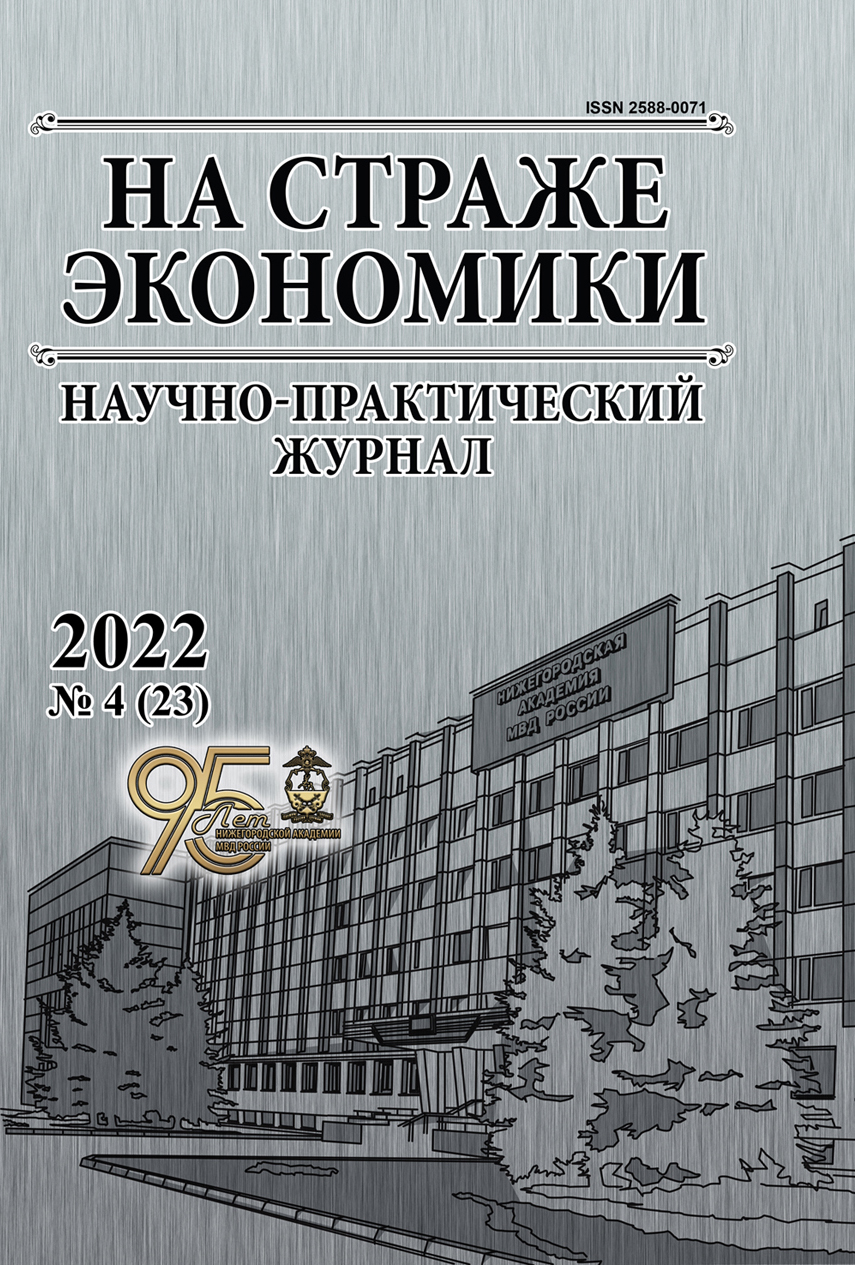In the context of the active development of tools for economic interaction that facilitate the population’s access to various financial instruments, the problem of irrational behavior of economic agents is becoming more and more obvious. The reasons for the increase in costs, the criminalization of financial relations and the growth of fraud are often the inability of economic entities to assess the risks and costs of their own actions, due to the desire to extract additional profits and reduce costs. Assuming that informational influences from public and state institutions cannot change the behavior of the population due to existing ideas about the possibilities of making a profit, a distorted assessment of financial services, and the ineffectiveness of methods of informational influence, we consider it expedient to obtain new scientific knowledge about irrational behavior. This explains the relevance of the study. The article examines the theoretical foundations and empirical characteristics of irrational economic behavior, studies the strategies for distributing funds available to consumers. The aim of the study is to identify signs of irrational consumer behavior when studying the ratio of income and expenses of a subject. The conducted empirical research has shown that the indicator of the ratio of income and expenses is a defining indicator of irrational consumer behavior. The authors show the characteristics of irrational behavior, determine the share and level of its manifestation in a sample of consumers. Found that 29 % of respondents regularly go beyond their monthly budget. In this case, the repayment of the difference between income and expenses is carried out, as a rule, by borrowing in the form of consumer lending, overdraft. On the basis of the research carried out by the authors, conclusions are drawn about the prerequisites for the irrational economic behavior of subjects. The results of the study can be used for a preliminary assessment of the prevalence of irrational strategies of consumer behavior, and serve as the basis for programs for their prevention.
irrational behavior, consumer preferences, questionnaire survey, strategy, income, expenses
1. Hirschman E. C., Holbrook M. B. Hedonic consumption: emerging concepts, methods and propositions. Journal of Marketing, 1982, vol. 46, pp. 92-101.
2. Schmitt B. H. Experiential Marketing. New York: the Free Press Publ., 1999.
3. Goldstein D., Gigerenzer G. Models of Ecological Rationality: The Recognition Heuristic. Psychological Review, 2002, vol. 109, no. 1, pp. 75-90.
4. Carbone L., Haeckel S. Engineering customer experiences. Marketing Management, 1994, no. 8, pp. 8-19.
5. Pine J., Gilmor J. The experience economy. Boston: Harvard Business School Press Publ., 1999.
6. Analysis of the dynamics of the debt burden of the Russian population in the II-III quarters of 2020 based on the data of bureaucratic histories: information and analytical material. URL: https://cbr.ru/Collection/Collection/File/31945/review_03022021.pdf (accessed 15.09.2022). (In Russ.)
7. Marshall A. Principles of economic science / transl. from English. Moscow: “Progress” Publ., 1993. 594 p. (In Russ.)
8. Veblen T. B. The theory of the leisure class / transl. from English. Moscow: “Progress” Publ., 1984. 367 p. (In Russ.)
9. Hoffman D. L. et Novak T. P. Marketing in hypermedia computer mediated environment: Concepts foundations. Journal of Marketing, 1996, vol. 60, no. 3, pp. 50-68.
10. Arieli D. Predictable rationality. Hidden forces that determine our decisions. Moscow: “Mann, Ivanov and Ferber” Publ., 2010. 339 p. (In Russ.)
11. Zajonc R. B. Feeling and Thinking. American Psychologist, 1980, no. 35, pp. 151-175.
12. Zajonc R. B. On the primacy of affect. American Psychologist, 1984, no. 39, pp. 117-123.
13. Valence G., d’Astous A., Fortier L. Compulsive buying: Concept and buying: Concept and measurement. Journal of Consumer Policy, 1988, no. 11, pp. 419-433. (In Russ.)
14. Andersen R. Postmodern Theory and Consumer Culture. Consumer Culture and TV Programming, pp. 92-117. URL: https://doihttps://doi.org/10.4324/9780429034619-5 (accessed 15.09.2022).
15. Garrido-Morgado Á., González-Benito Ó., Martos-Partal M. Influence of Customer Quality Perception on the Effectiveness of Commercial Stimuli for Electronic Products. Frontiers in Psychology, 2016, no. 7, pp. 89-104. URL: https://doihttps://doi.org/10.3389/fpsyg.2016.00336 (accessed 15.09.2022).










